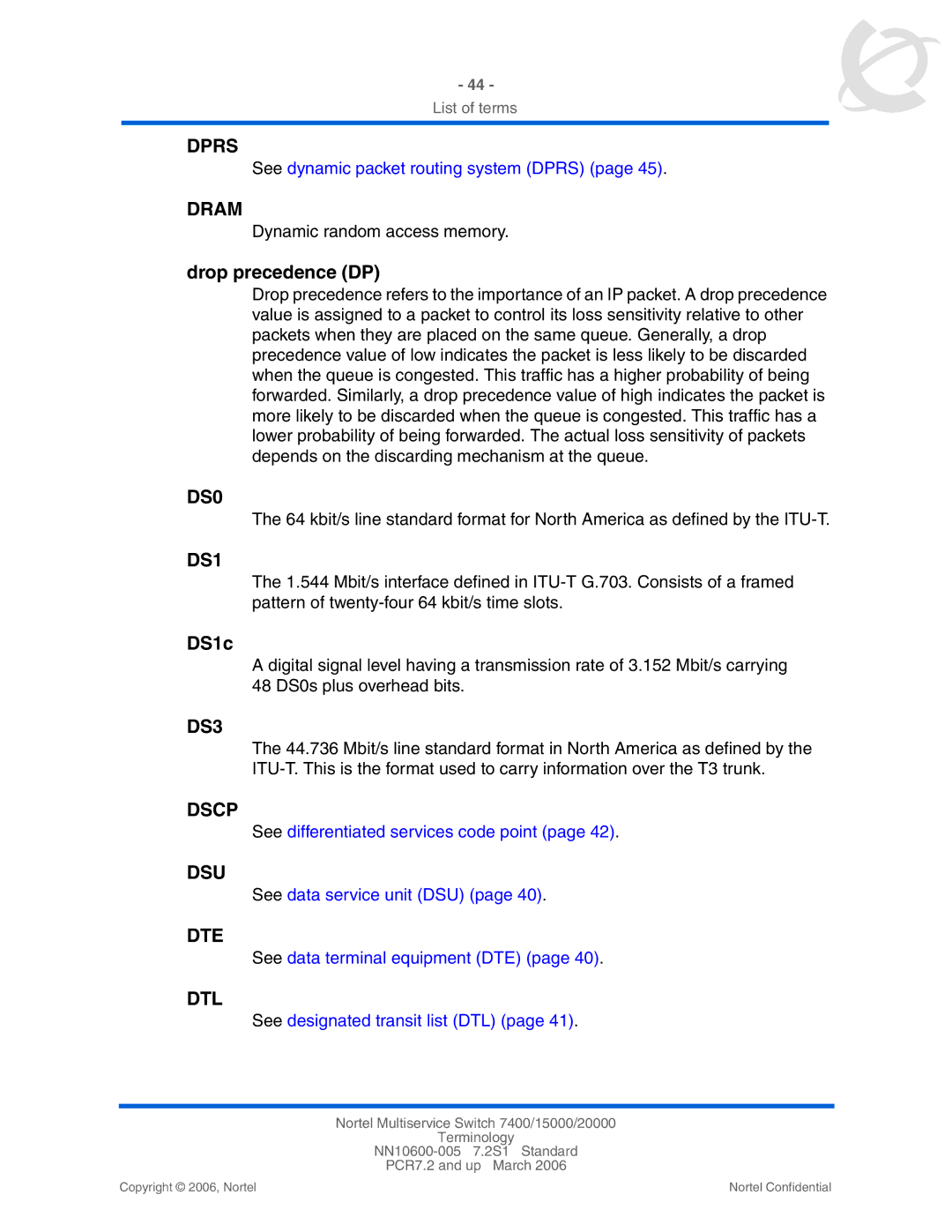
- 44 -
List of terms
DPRS
See dynamic packet routing system (DPRS) (page 45).
DRAM
Dynamic random access memory.
drop precedence (DP)
Drop precedence refers to the importance of an IP packet. A drop precedence value is assigned to a packet to control its loss sensitivity relative to other packets when they are placed on the same queue. Generally, a drop precedence value of low indicates the packet is less likely to be discarded when the queue is congested. This traffic has a higher probability of being forwarded. Similarly, a drop precedence value of high indicates the packet is more likely to be discarded when the queue is congested. This traffic has a lower probability of being forwarded. The actual loss sensitivity of packets depends on the discarding mechanism at the queue.
DS0
The 64 kbit/s line standard format for North America as defined by the
DS1
The 1.544 Mbit/s interface defined in
DS1c
A digital signal level having a transmission rate of 3.152 Mbit/s carrying 48 DS0s plus overhead bits.
DS3
The 44.736 Mbit/s line standard format in North America as defined by the
DSCP
See differentiated services code point (page 42).
DSU
See data service unit (DSU) (page 40).
DTE
See data terminal equipment (DTE) (page 40).
DTL
See designated transit list (DTL) (page 41).
Nortel Multiservice Switch 7400/15000/20000
Terminology
PCR7.2 and up March 2006
Copyright © 2006, Nortel | Nortel Confidential |
